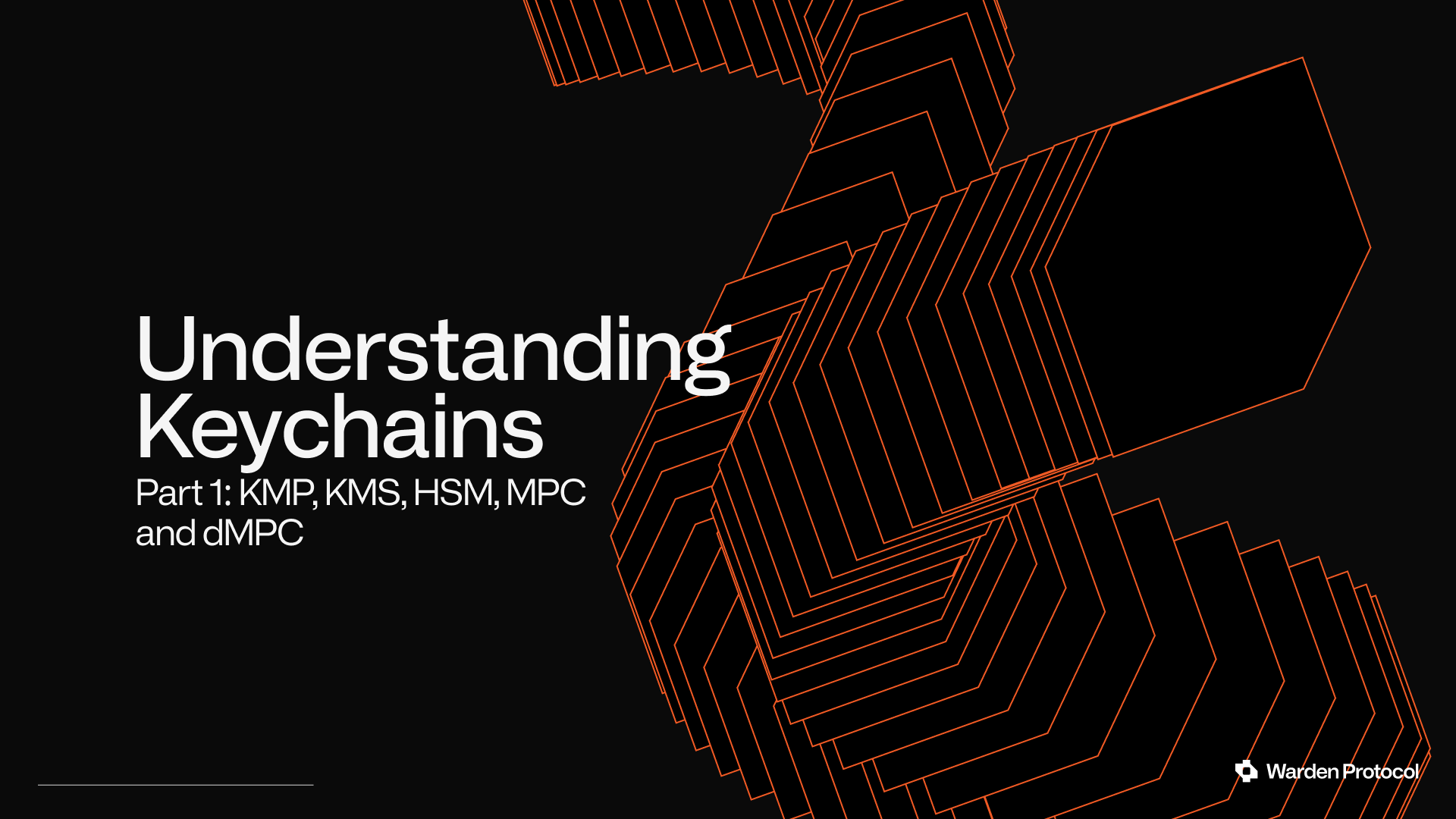
KMP, KMS, HSM, MPC and dMPC
As blockchain technology continues to revolutionize various industries by offering decentralized solutions with enhanced security and efficiency, understanding key concepts such as Key Management Providers, Key Management Services, Hardware Security Modules (HSMs) and Multi-Party Computation (MPC) providers is crucial. Let us quickly illuminate these key concepts.
Foundations of Key Management: Exploring Providers and Technologies in Blockchain Ecosystems
Let us start by examining Key Management Providers (KMPs) and Key Management Services (KMSs). Both represent integral components in ensuring the security and integrity of cryptographic keys within blockchain ecosystems.
Key Management Providers (KMPs) typically offer hardware-based solutions designed to securely generate, store, and manage cryptographic keys. These hardware devices, such as Hardware Security Modules (HSMs), are equipped with specialized components and secure enclaves to protect keys from unauthorized access or tampering attempts. KMPs are often integrated into on-premises infrastructure, providing organizations with direct control over key management processes and ensuring the physical security of cryptographic keys.
Key Management Services (KMSs), on the other hand, provide cloud-based key management solutions that offer flexibility and scalability for diverse blockchain applications. These services leverage remote servers and cryptographic protocols to facilitate key generation, storage, and access control in a distributed environment. KMSs enable organizations to offload key management responsibilities to trusted third-party providers, reducing the operational overhead associated with maintaining on-premises hardware infrastructure. Additionally, KMSs often incorporate advanced security features such as encryption-at-rest and access controls to ensure the confidentiality and integrity of cryptographic keys stored in the cloud.
Hardware Security Modules (HSMs) and Multi-Party Computation (MPC) providers are essential for ensuring the security and integrity of cryptographic keys in blockchain ecosystems by offering tamper-resistant hardware solutions and distributed key management techniques, respectively.
Hardware Security Modules (HSMs) are specialized hardware devices designed to provide secure key management and cryptographic operations. These devices employ dedicated cryptographic processors and secure enclaves to generate, store, and perform cryptographic operations on keys securely. HSMs utilize physical protections such as tamper-resistant enclosures and anti-tamper mechanisms to safeguard keys from unauthorized access or extraction attempts. Additionally, HSMs incorporate cryptographic algorithms and protocols to ensure the confidentiality and integrity of key operations, providing a trusted execution environment for sensitive cryptographic tasks.
Multi-Party Computation (MPC) providers offer distributed key generation and signing solutions that leverage cryptographic techniques to secure keys across multiple parties without exposing sensitive information. MPC protocols enable independent entities to collaboratively generate and share cryptographic keys without revealing individual inputs. These protocols leverage advanced cryptographic primitives such as threshold cryptography and secure multi-party computation to ensure the confidentiality and integrity of key operations in distributed environments. By distributing key generation and signing operations across multiple parties, MPC providers mitigate the risk of single points of compromise and enhance the resilience of cryptographic key management.
And last, but certainly not least, let’s quickly discuss dMPCs.
Distributed Multi-Party Computation (dMPC) is also very useful, as it extends the capabilities of traditional MPC protocols by distributing computation across multiple nodes in a decentralized network. This approach enables secure and scalable key management solutions in blockchain ecosystems where trust among participants is limited. dMPC protocols leverage consensus mechanisms and cryptographic techniques to ensure the integrity and confidentiality of key operations across distributed nodes. By decentralizing computation, dMPC providers enhance the resilience and flexibility of key management solutions, enabling secure collaboration among independent entities in blockchain networks.
Securing Keychains in the Warden Protocol: A Robust Framework for Cryptographic Key Management
In conclusion, the technologies securing keychains in the Warden Protocol, such as modular key management, HSMs, MPC, and dMPC, create a robust framework for cryptographic key security. Modular key management offers users flexibility and control, while HSMs provide physical and cryptographic safeguards. Additionally, MPC and dMPC ensure secure distributed key management, fostering trust and mitigating risks. In Part 2, we'll delve deeper into Keychains, exploring how these technologies converge to empower users within the Warden Protocol, driving innovation and trust in blockchain ecosystems.